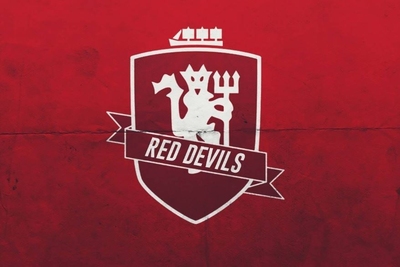 Since the human race first developed the ability to speak nicknames have been used.
Since the human race first developed the ability to speak nicknames have been used.
In the Garden of Eden, had it existed, there’s no doubt that Eve would have called Adam ‘Ad’ to save time on using that extra syllable. Perhaps the snake chose her over him because Adam had kept calling him ‘Slidy’, thinking it was a term of endearment.
But enough of this biblical nonsense.
It was only natural that over time, the use of nicknames would progress to sporting events and, more specifically, football teams.
Whether it be opposition fans giving a team a derogatory name in order to annoy their rival fans or a name from the supporters themselves, keen to make the club their own, virtually all football teams have a nickname. Yet where did they come from? Was there a reason they started getting used in the first place? And what are some of the better origin stories?
Premier League Team Nicknames
| Team | Nickname |
|---|---|
| AFC Bournemouth | The Cherries |
| Arsenal | The Gunners |
| Aston Villa | The Villans, The Villa, Villa |
| Brentford | The Bees, The Reds |
| Brighton & Hove Albion | The Seagulls, The Albion |
| Burnley FC | The Clarets |
| Chelsea | The Blues, The Pensioners |
| Crystal Palace | The Eagles, The Glaziers |
| Everton | The Blues, The Toffees, The People's Club |
| Fulham | Cottagers, Whites, Black and White army |
| Liverpool | The Reds |
| Luton Town | The Hatters |
| Manchester City | The Citizens, City, The Sky Blues |
| Manchester United | The Red Devils |
| Newcastle United | The Magpies, Geordies |
| Nottingham Forest | Forest |
| Sheffield United | The Blades, Red and White Wizards |
| West Ham United | The Irons, The Hammers, The Academy Of Football |
| Wolverhampton Wanderers | Wolves, The Wanderers |
Other UK Club Nicknames
Championship
| Team | Nickname |
|---|---|
| Birmingham City | The Blues |
| Blackburn Rovers | Rovers, The Blue and Whites, The Riversiders |
| Bristol City | The Robins |
| Cardiff City | The Bluebirds |
| Coventry City | The Sky Blues |
| Huddersfield Town | The Terriers |
| Hull City | The Tigers |
| Ipswich Town | Blues, Tractor Boys, "Pride of East Anglia" |
| Leeds United | The Whites, United, The Peacocks |
| Leicester City | The Foxes |
| Middlesbrough | The Boro, Smoggies |
| Millwall | The Lions (Formerly known as The Dockers) |
| Norwich City | The Canaries, Yellows |
| Plymouth Argyle | The Pilgrims, Argyle, The Green Army |
| Preston North End | The Lilywhites, PNE, The Whites, Preston, The Invincibles |
| Queens Park Rangers | The Hoops, The Rs, QPR |
| Rotherham United | The Millers |
| Sheffield Wednesday | The Owls |
| Southampton | The Saints |
| Stoke City | The Potters |
| Sunderland | The Black Cats |
| Swansea | The Swans |
| Watford | The Hornets, The Golden Boys, Yellow Army, The 'Orns |
| West Bromwich Albion | The Baggies, The Throstles, Albion |
League One
| Team | Nickname |
|---|---|
| Barnsley | The Tykes, The Reds |
| Blackpool | The Seasiders, The 'Pool, The Tangerines |
| Bolton Wanderers | The Trotters, The Wanderers |
| Bristol Rovers | The Pirates, The Gas |
| Burton Albion | The Brewers |
| Cambridge United | United, The U's |
| Carlisle United | Cumbrians, The Blues |
| Charlton Athletic | The Addicks, Red Robins, The Valiants |
| Cheltenham Town | The Robins |
| Derby County | The Rams |
| Exeter City | The Grecians |
| Fleetwood Town | The Cod Army |
| Leyton Orient | The O's, Orient |
| Lincoln City | The Imps |
| Northampton Town | The Cobblers |
| Oxford United | The U's, Yellows, The Boys from Up the Hill |
| Peterborough United | The Posh |
| Port Vale | The Valiants, The Vale, The Valeites |
| Portsmouth | Pompey |
| Reading | The Royals |
| Shrewsbury Town | Salop, The Blues, The Town, The Shrews |
| Stevenage | The Boro |
| Wigan Athletic | The Latics |
| Wycombe Wanderers | The Chairboys, The Blues |
League Two
| Team | Nickname |
|---|---|
| Accrington Stanley | Stanley, Accy Stanley |
| AFC Wimbledon | The Dons, The Wombles |
| Barrow AFC | The Bluebirds |
| Bradford City | The Bantams, The Paraders, The Citizens |
| Colchester United | The U's |
| Crawley Town | The Reds, Red Devils |
| Crewe Alexandra | The Railwaymen, The Alex |
| Doncaster Rovers | The Rovers, Donny, Vikings |
| Forest Green Rovers | Rovers, The Green, FGR, The Little Club On The Hill, Green Army |
| Gillingham | The Gills |
| Grimsby Town | The Mariners, Mighty Mariners, Town |
| Harrogate Town | Town, The Sulphurites |
| Mansfield Town | The Stags, Yellows |
| MK Dons | The Dons |
| Morecambe | The Shrimps, Red and White Army (Now Red and Black Army), Seasiders |
| Newport County | The Exiles, The Ironsides, The Port, The County |
| Notts County | The Magpies, County, Notts |
| Salford City FC | The Ammies |
| Stockport County | The Hatters, County |
| Sutton United | The Us, The Amber and Chocolates, The Yellows |
| Swindon Town | The Robins |
| Tranmere Rovers | Super White Army, Rovers |
| Walsall | The Saddlers |
| Wrexham A.F.C | Red Dragons, The Robins |
Scotland
| Team | Nickname |
|---|---|
| Aberdeen | The Dons, The Reds, The Dandies, The Sheep |
| Celtic | The Bhoys, The Hoops, The Celts |
| Dundee | The Dark Blues, The Dee |
| Dundee United | The Tangerines, The Terrors |
| Hamilton Academical | The Accies |
| Heart Of Midlothian | Hearts, The Jam Tarts, HMFC, The Maroons |
| Hibernian | Hibs, Hibees, The Cabbage |
| Inverness Caledonian Thistle | Caley Thistle, Caley Jags, The Pride of the Highlands |
| Kilmarnock | Killie |
| Livingston | Livi, The Lions |
| Motherwell | Well, The Steelmen, The Dossers |
| Partick Thistle | The Jags, The Maryhill Magyars, The Harry Wraggs, Thistle |
| Queens Park FC | The Spiders, The Glorious Hoops |
| Rangers | The Gers, The Teddy Bears, The Light Blues |
| Ross County | The Staggies |
| Scotland | The Tartan Terriers |
| St Mirren | The Buddies, The Saints |
| St. Johnstone | The Saints, Perth Saints, The Sainties |
ROW
| Team | Nickname |
|---|---|
| AC Milan | I Rossoneri (The Red and Blacks), Il Diavolo (The Devil), Casciavit (Lombard for: Screwdrivers) |
| ACF Fiorentina | Viola (Purple), Gigliati (Lilies) |
| AFC Ajax | de Godenzonen (Sons of the Gods),[1][2] de Joden (the Jews), I Lancieri (The Lancers), Lucky Ajax |
| AIK Fotboll | Gnaget |
| AS Monaco | Les Rouges et Blancs |
| AS Roma | I Giallorossi (The Yellow and Reds), La Maggica (The Magic One), I Lupi (The Wolves) |
| AS Saint-Étienne | Les Verts (The Greens), Sainté ASSE |
| Atalanta | La Dea, Gli Orobici, I Nerazzurri |
| Athletico Bilbao | Los Leones / Lehoiak (The Lions) Rojiblancos / Zuri-gorriak (Red-Whites) |
| Atlético Madrid | Colchoneros, Rojiblancos, Atleti |
| AZ Alkmaar | Cheeseheads |
| Azerbaijan | Milli |
| Barcelona | Barça, Blaugrana |
| Bayer Leverkusen | Werkself |
| Bayern Munich | Der FCB (The FCB), Die Bayern (The Bavarians), Stern des Südens (Star of the South), Die Roten (The Reds), FC Hollywood |
| Benfica | Águias, Encarnados, Glorioso |
| Beşiktaş | Black Eagles, Black and whites |
| Borussia Dortmund | Die Borussen, Die Schwarzgelben, Der BVB |
| Borussia Mönchengladbach | Die Fohlen, Die Borussen |
| Cardiff City | The Bluebirds |
| Celta Vigo | Célticos (The Celts/Celtics), Celestes (The Sky Blues), Celtiñas (The Little Celta) |
| Club Brugge KV | Blauw-Zwart, Club, FCB |
| Croatia | Vatreni |
| CSKA Moscow | Koni (Horses), Krasno-sinie (Red-blues), Armeitsy (Militarians) |
| Denmark | De Rød-Hvide (The Red and White), Olsen-Banden (The Olsen Gang), Olsens Elleve (Olsen's Eleven), The Red and White Football Aces |
| Deportivo Alavés | Babazorros El Glorioso (The glorious one) |
| Dinamo Zagreb | Modri, Plavi |
| Eintracht Frankfurt | SGE (Sportgemeinde Eintracht), Die Adler (The Eagles), Launische Diva (Moody Diva, Schlappekicker (Slipper Kickers), Die Diva vom Main (The Diva From the Main) |
| Espanyol | Periquitos (Budgerigars) Blanquiazules (White and Blue) Mágico (Magical) |
| FC Baltika Kaliningrad | Balda |
| FC Basel 1893 | FCB, Bebbi, RotBlau |
| FC Cologne | Die Geißböcke (The Billy Goats) |
| FC Copenhagen | Byens Hold (The Team of the City), Løverne (The Lions) "Byens Drenge" (The Boys of the City) |
| FC Porto | Dragões, Azuis e brancos |
| FC Red Bull Salzburg | Die Roten Bullen (The Red Bulls) |
| FC Rostov | Selmashi |
| FC Schalke 04 | Die Königsblauen (The Royal Blues), Die Knappen (The Miners) |
| FC Shakhtar Donetsk | Hirnyky (The Miners), Kroty (The Moles) |
| FC Steaua București | Roș-Albaștrii (The Red and Blues), Militarii (The Army Men), Viteziștii (The Speedsters) |
| FC Ural | Uraltsy (Ural men), Bumblebees, Orange and Black |
| Fenerbahçe | Sarı Kanaryalar (The Yellow Canaries), Sarı Lacivertliler (The Navy Blue-Yellows), Efsane (The Legend), Fener, Kadıköy Boğası (Kadıköy's Bull) |
| Feyenoord | De club aan de Maas (The Club on the Meuse), De Stadionclub (The Stadium Club), De Trots van Zuid (The Pride of the South), De club van het volk (The Club of the People) |
| Fortuna Düsseldorf | Flingeraner, Fortunen, Rheinländer |
| France | Les Bleus (The Blues), Les Tricolores (The Tri-colors) La Sélection (The Selection) |
| Galatasaray | Sarı-Kırmızılılar (The Yellow-Reds), Aslanlar (The Lions), Avrupa Fatihi (Conqueror of Europe), Gala |
| Gent | De Buffalo's |
| Girondins de Bordeaux | FCGB, Les Girondins (The Girondins), Le club au scapulaire (The Club with the V-Shape), Les marine et blanc (The Navy-and-Whites) |
| Greece | Ethniki (National), Galanolefki (Sky blue-white), Piratiko (Pirate Ship) |
| Hamburg SV | "Die Rothosen (The Red Shorts) Der Dino (The Dinosaur)" |
| Hertha Berlin | Die Alte Dame (The Old Lady) |
| Hoffenheim | Die Kraichgauer, achtzehn99 |
| Hungary | Magyarok (Magyars) , Nemzeti Tizenegy (National Eleven) |
| Inter Milan | I Nerazzurri (The Black and Blues), La Beneamata (The Cherished One), Il Biscione (The Big Grass Snake) |
| İstanbul Başakşehir F.K. | Baykuş (The Owls) |
| Juventus | La Vecchia Signora (The Old Lady), La Fidanzata d'Italia (The Girlfriend of Italy), La Madama (Piedmontese for: Madam), Il Bianconeri (The White and Blacks), Le Zebre (The Zebras), La Signora Omicidi (The Killer Lady),La Goeba (Gallo-Italic for: Hunchback |
| KRC Genk | Blauw-Wit (Blue-White), Racing, KRC, De Smurfen (The Smurfs) |
| Lechia Gdańsk | Gdańskie Lwy (Gedanian Lions), Pasiaki (The stripes), Biało-Zieloni (White-Greens) Lechiści (Lechistas) |
| Legia Warsaw | Wojskowi, Legioniści |
| Lille OSC Métropole | Les Dogues (The Great Danes) |
| Lokomotiv Moscow | Loko, Parovozy (Steam Locomotives) |
| Napoli | Partenope, Gli Azzurri, I Ciucciarelli |
| Netherlands | Oranje, Holland, Clockwork Orange, The Flying Dutchmen |
| Newport County | The Exiles, The Ironsides, The Port, The County |
| Northern Ireland | Green and White Army, Norn Iron |
| OGC Nice | Les Aiglons (The Eaglets), Le Gym |
| Olympiacos | Thrylos (The Legend), Erythrolefkoi (The Red-Whites), Kokkinoi (The Reds), Dafnostefanomenos (The laurel-crowned) |
| Olympique de Marseille | Les Phocéens, L'OM, Les Olympiens |
| Olympique Lyonnais | Les Gones (The Kids) |
| Paris Saint-Germain | Les Rouge-et-Bleu (The Red and Blue) Les Parisiens (The Parisians) |
| PFC Ludogorets Razgrad | Orlite (The Eagles) |
| PSV Eindhoven | Farmers, Red and whites |
| Qarabag FK | Atlılar (The Horsemen) |
| R.S.C. Anderlecht | Purple & White, Sporting |
| RB Leipzig | Die Bullen (The Bulls), Die Roten Bullen (The Red Bulls) |
| RC Lens | Sang et Or (Blood and Gold) |
| Real Madrid | Los Blancos, Los Merengues, Los Vikingos |
| Real Sociedad | Txuriurdin (White and Blue), Erreala / La Real (The Royals) |
| Red Star Belgrade | "Звезда / Zvezda (The Star) Црвено-бели / Crveno-beli (The Red-Whites)" |
| Republic Of Ireland | The Boys in Green, The Green Army |
| Romania | Tricolorii (The Tricolours) |
| Rubin Kazan | atáry (Tatars), Volzháne (People from Volga), Kamni (Stones) |
| Russia | Медведи (Bears), Золотые орлы (Golden Eagles) |
| SD Eibar | Armagiñak / Los Armeros (The Gunners) |
| Serbia | Оrlovi / Орлови (The Eagles) |
| Sevilla | Los Rojiblancos, Los Nervionenses, El Grande de Andalucía |
| Slavia Prague | Červenobílí (The red and whites), Sešívaní (The stitched), Věčná Slavia (The Eternal Slavia) |
| Spartak Moscow | Narodnaya komanda (The People's Team), Krasno-Belye (The Red-Whites), Myaso (Meat) |
| Sporting Club de Portugal | Leões, Verdes e Brancos |
| SS Lazio | I Biancocelesti (The White and Sky Blues), I Biancazzurri (The White and Blues), Le Aquile (The Eagles), Gli Aquilotti (The Eaglets) |
| Swansea | The Swans |
| Sweden | Blågult |
| Toulouse | Le Téfécé, Le Pitchouns, Le Violets |
| TSV 1860 München | Die Löwen (The Lions), Sechzig (Sixty), (Die) Sechzger ((The) Sixties), Münchens große Liebe (Munich's great love) |
| Turkey | Ay-Yıldızlılar (The Crescent-Stars) |
| Valencia CF | Los Che, Els Taronges (The Oranges), Valencianistes, Los Murciélagos (The Bats) |
| VfB Stuttgart | Die Roten (The Reds), Die Schwaben (The Swabians) |
| Villareal | El Submarino Amarillo (The Yellow Submarine) |
| Wales | The Dragons (Welsh: Y Dreigiau) |
| Wrexham A.F.C | Red Dragons, The Robins |
| Zenit St. Petersburg | Lvi (Lions), Sine-Belo-Golubye (The Blue-White-Sky Blues), Zenitchiki (The Anti-aircraft Gunners) |
Common Reasons For Football Club Nicknames
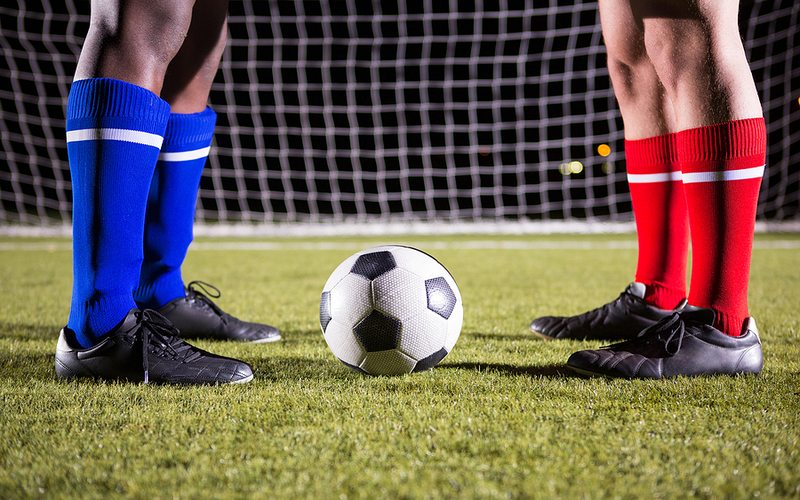
Plenty of the most obvious nicknames are based around little more than the colour of shirt that the team plays in. Take the city of Liverpool, for example. There you have two teams that have competed in the top-flight of English football for most, though not all, of their history. Everton play in blue and Liverpool play in red. Unsurprisingly, therefore, they are often referred to as the Blues and the Reds. Indeed, if you meet someone from the city a shorthand for discovering which team they support is simply to ask ‘Are you a red or a blue’?
Some supporters choose to go down slightly more obtuse roads in order to arrive at a decent nickname. They’ll still go off the colour of the shirt that the team plays in, but they’ll use the colour as inspiration for something else. Animals are regularly used by some teams, with Hull City being an excellent example. The team has played in orange and black for the majority of its existence, so ‘The Tigers’ was an easy jump to make. Likewise Newcastle play in black and white, so ‘The Magpies’ seems like an obvious name to call them by. The biggest difference being that real magpies like flying off with shiny things but Newcastle seem incapable of getting their hands on anything shiny at all…
There are some examples of teams that appear to be named after animals but which actually aren’t. The two most prominent are, coincidentally, named after birds. Sheffield Wednesday are known as ‘The Owls’, but this has nothing to do with the wise old creature being common to the city of Sheffield. Nor have, at least as far as evidence shows, any of their fans, players or managers been able to spin their head around 360 degrees on their shoulders. Instead it’s a lot more simplistic than that – their home ground of Hillsborough was built in the Owlerton district of Sheffield.
It would not be unreasonable for you to conclude that Norwich City are known as ‘The Canaries’ because they play in a bright yellow kit with green trim. Interestingly, though, the kit came after the nickname. Norwich has been a popular breeding ground for canaries going back as far as the Middle Ages. The bird was first imported to the area by weavers and has long been associated with the city for that very reason. It made sense, therefore, to give a nod to this part of the city’s heritage by having that colour kit and also putting a canary on the club’s crest.
Less Obvious Reasons For Club Nicknames
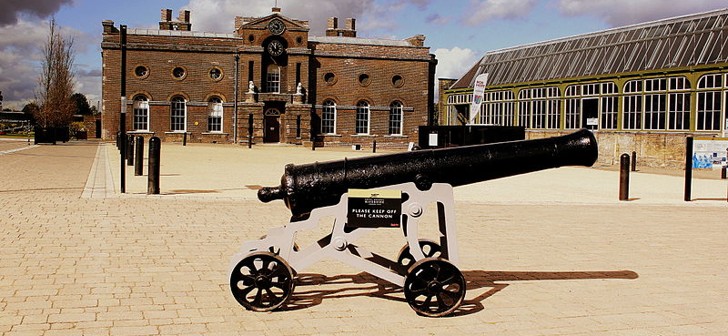
The team that is nowadays known as Arsenal was originally called Dial Square when it was formed by workers from a munitions factory in 1886. Dial Square was the centre of the Royal Arsenal complex itself, but many felt the name didn’t work for a football club so they became Royal Arsenal just a month after forming.
In 1893 they became Woolwich Arsenal and they kept this name until 1914 when, after moving to North London, it didn’t make sense to keep the ‘Woolwich’ part in their name any more. They became ‘The Arsenal’ and later simply Arsenal, but the links to their past were never forgotten. The club’s origins from a munitions factory is still remembered today in their nickname of ‘The Gunners’.
A very similar tale explains why West Ham United are known as ‘The Hammers’. The side was formed as an amateur team in 1895 under the original name of Thames Ironworks. That was because it was created by the local ironworks’ foreman and the team was made up of its employees. To this day they not only have that nickname but also have to crossed hammers on their crest as a nod to their industrious past.
Random Nicknames
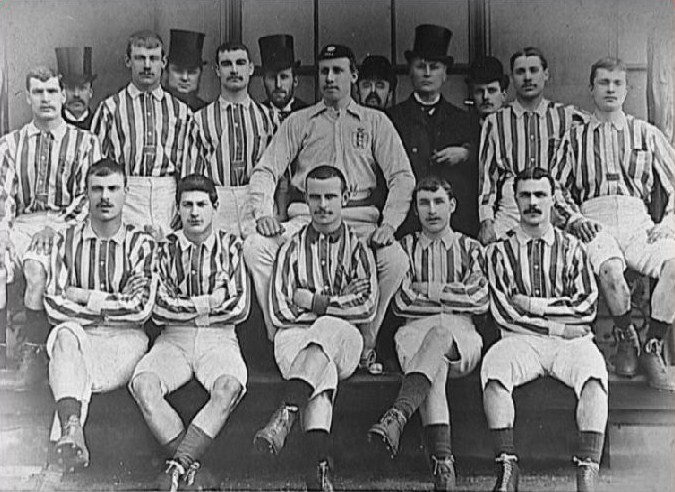
Perhaps less random that that but still decidedly straw-grasping is that fact that Everton, as well as being known as ‘The Blues’, are also called ‘The Toffees’. This was because there was a toffee shop near to the ground called ‘Mother Noblett’s’ that began to sell the Everton mint. Supporters used to go there before the game and hence the nickname grew from there. In the 1950s and 1960s a woman dressed up as ‘Mother Noblett’ would walk around the edge of the pitch and throw toffees into the crowd, helping the nickname to develop.
There is no definitive reason why Bolton Wanderers are known as ‘The Trotters’. There are three reported reasons, so perhaps you might just want to pick your favourite. Arguably the least interesting reason suggested by some is that trotting is merely a derivative of wandering, as in roaming around the place. Another is that a ‘trotter’ is a colloquial term for a joker and people from Bolton were known to play tricks and practical jokes on each other. The best suggestion, though, is that their old ground was built next to a pig farm.
The last one we’ll tell you about in this section is West Brom’s nickname of ‘The Baggies’. Again, there’s no definitive explanation for where this moniker has come from, with some suggesting that it was because the players used to wear baggy shorts in the early days of the clubs existence. That seems unlikely, however, with most teams not exactly wearing skintight clothing back in the late part of the 19th century. More likely is the fact that the money from supporters used to be collected into big bags and then given a police escort along the side of the pitch to the main office on the halfway line. Supporters reportedly took to shouting, “Here come the bag men!”, which developed into “Here come the baggies!” over time.
Ludicrous Nicknames
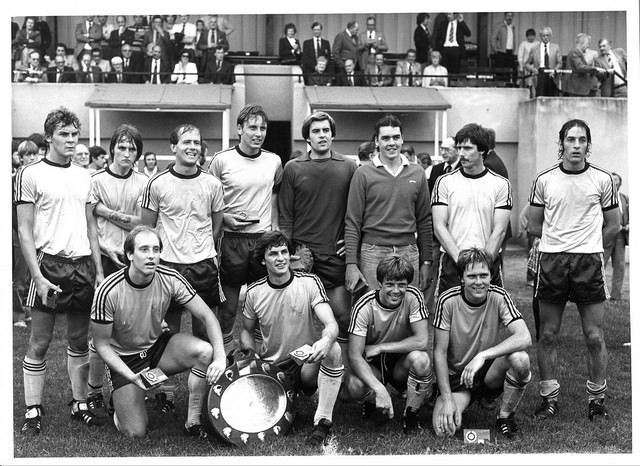
There’s no doubt that some clubs have some quite ludicrous and stupid nicknames. Charlton Athletic, for example, are known as ‘The Addicks’. This was a bastardisation of the word ‘haddock’ and was given to them because the ground was built near to a well-known fish and chip shop.
There are a number of clubs that have amusing nicknames because of the industry that was based in the town or city where the club was formed. Take Kidderminster Harriers, as an example. Kidderminster was the home of the modern carpet industry, so the football club took on the nickname of ‘The Carpetmen’. Similarly, Wycombe was the home of the local furniture making industry so Wycombe Wanderers became known as ‘The Chairboys’.
Hartlepool United are the owners of one of the game’s most ridiculous nicknames and accompanying stories. During the Napoleonic War tensions were high in the coastal town of Hartlepool. Suspicion was thrown on anyone that wasn’t immediately recognised by someone who could vouch for them, with the fear being that the slightest mistake could lead to a major advantage in the war being handed to the french. That is the rationale for why the citizens of Hartlepool decided to hang a monkey, believing it to be a French spy. Whether that story is true or not is largely irrelevant – what we do know is that the football team continues to be known as ‘The Monkey Hangers’ to this day.
New Nicknames
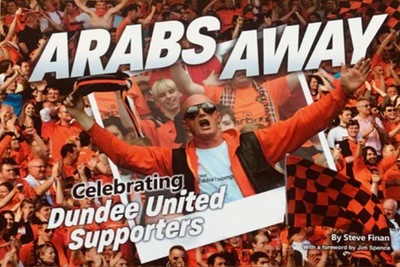 As long as football club continue to be formed then they’ll earn themselves a nickname. Sometimes they’ll be obvious, other times they’ll be slightly more obscure and based around something that has happened during the club’s existence.
As long as football club continue to be formed then they’ll earn themselves a nickname. Sometimes they’ll be obvious, other times they’ll be slightly more obscure and based around something that has happened during the club’s existence.
As an example of the latter reason you can look North of the border to Dundee United. In 1963 the club was gearing up to host a Scottish Cup but the pitch was frozen. The fans decided to spread copious amounts of sand onto the turf in the hope that this would cause the ice to melt but instead it earned them a nickname of ‘The Arabs’. It’s worth noting that this name is specifically in reference to the supporters rather than the football club itself.
Sometimes supporters enjoy the nickname that their club gets given. Sometimes, however, they’re not that interested and the name is used mostly by the press in an attempt to drum up some interest in various stories. That is the case with FC United of Manchester, the club that was formed in 2005 as a reaction to the news of Malcolm Glazer’s takeover of Manchester United. Because it was created by disaffected supporters of the Red Devils, the Manchester Evening News decided to give the club the nickname ‘The Red Rebels’.
Offensive Nicknames
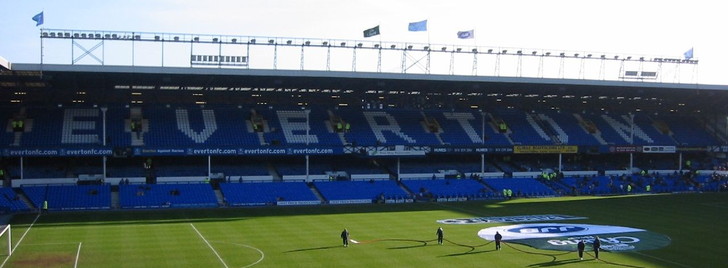
It should come as little surprise that supporters of rival football clubs have come up with derogatory nicknames for their enemies over the years. Heading back to the start of the piece and the city of Liverpool, Liverpool fans often refer to Evertonians by the belittling title of ‘Bluenoses’. In response supporters of Everton call Liverpool fans ‘The Redsh*te’. For a city once famed for the friendliness of its rivalry, things have taken a more bitter turn in recent years. That is due in part to Liverpool’s success and Everton’s lack thereof, also earning Evertonians the nickname of ‘Bitters’.
Tottenham is an area of London with quite a large Jewish population. Over the years Spurs have also been under the chairmanship of many Jewish businessmen. During the 1970s and 1980s their supporters would encounter opposition teams that boasted a large number of National Front members; this was particularly the case with West Ham and Chelsea. Some of them would sing anti-semitic chants towards the Spurs fans. Rather than let them win and be intimidated by it, the Tottenham fans took on the label and began to refer to themselves as ‘The Yid Army’; the word ‘yid being an offensive term for a Jewish person.
The different lists in the piece are far from exhaustive. There are many more teams named after the colour of their kit or the industry that made their local area famous. Hopefully, though, this gives you something of a taste of the sort of nicknames that exist in football and why they were given in the first place. Exploring the etymology of these nicknames is a fun way to spend a bit of time, so next time you hear a club referred to by a name you’ve never heard before perhaps find out what it means and where it came from.
